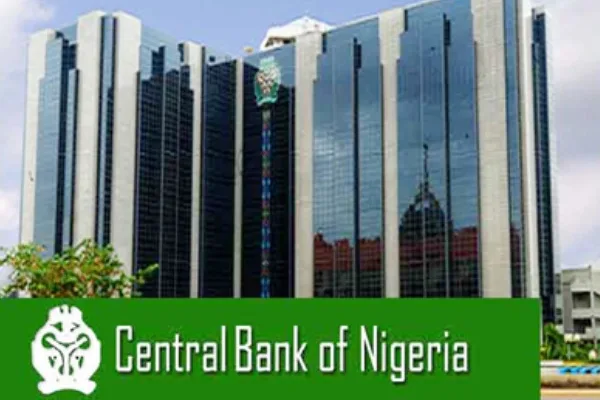CBN Mandates PoS Transaction Tracking Across Nigeria
The Central Bank of Nigeria (CBN) has issued a new directive requiring all Payment Service Providers (PSPs) to track and manage every Point of Sale (PoS) transaction.
The CBN has set a 30-day deadline for PSPs to ensure their systems comply with the new rules, which aim to improve transparency in Nigeria’s payment systems.
Join our WhatsApp ChannelThis directive comes from concerns regarding the concentration of PoS transactions through a single aggregator. As part of the CBN’s ongoing efforts to address these concerns, the bank granted an additional Payment Terminal Service Aggregator (PTSA) license to Unified Payment Services Limited (UPSL) earlier this year.
CBN’s New Rules for PoS Transactions
The CBN released a circular, dated September 11, 2024, signed by the Director of Payments System Management, Oladimeji Taiwo, outlining the new requirements.
The circular stated, “Acquirers are henceforth required to route all transactions from PoS terminals at merchant and agent locations, whether on physical or electronic PoS terminals, through any CBN-licensed Payment Terminal Service Aggregator (PTSA).”
This means that all PoS transactions in Nigeria will now go through certified aggregators, enhancing control and regulation of payment systems. They emphasised that PSPs must integrate with the licensed PTSAs to ensure the seamless routing of transactions.
CBN intends to streamline PoS transactions, while also providing acquirers—those entities responsible for processing transactions—with the freedom to choose which Processor and PTSA they want to work with.
READ ALSO: CBN Sells $20,000 To BDCs At N1,580 As Naira Depreciation Persists
CBN Outlines Compliance and Sanctions
In the circular, the CBN specified that PSPs must report their activities regularly. “All PTSPs shall submit monthly returns to the CBN, detailing the number of merchants and agents they manage, along with the PTSA services used to route the corresponding transactions,” the circular further detailed. This reporting requirement ensures accountability from both service providers and aggregators.
Failure to comply with these new regulations could lead to serious consequences. The CBN clarified that PSPs not adhering to the guidelines within the given 30-day timeframe will face penalties. “Please be guided accordingly as non-compliance shall attract appropriate sanctions,” the CBN warned.
Industry Experts Weigh In on the CBN’s Move
Industry stakeholders have expressed mixed reactions to the CBN’s directive. Some believe it will help streamline the industry, while others fear the potential burden it may place on smaller service providers.
An anonymous PSP operator in Lagos said, “The CBN’s directive could cause disruptions if PSPs are unable to integrate with PTSAs quickly. However, this move will likely enhance transparency in the long run, which is good for the entire sector.”
Another expert in the payments industry expressed optimism. “This step will ensure that PoS transactions are secure and less prone to fraud,” said Adewale Johnson, a financial analyst. “It’s a positive move towards making the payment system more robust. The CBN is taking a proactive approach to protect consumers and the economy.”
What’s Next for PSPs?
The directive highlights the importance of prompt action for PSPs in Nigeria. As part of the compliance process, they must ensure their Point of Sale (PoS) devices and applications are configured to route transactions via any CBN-licensed PTSA as directed by the acquirer.
The CBN also specified that all licensed processors must be integrated with the PTSAs to allow acquirers flexibility in choosing which PTSA or processor to use. The new guidelines require PSPs to notify the CBN in writing once they have completed their regularisation process with the PTSAs.
In addition to tracking PoS transactions, they emphasised that all PSPs must submit their monthly returns to the Director of the Payments System Management Department no later than seven days after the end of each month.
This measure reflects the CBN’s ongoing commitment to tightening regulations around payment services and enhancing the integrity of Nigeria’s payment infrastructure.
CBN’s PoS Regulation is a Step Toward Accountability
As they move forward with their mandate, PSPs have no choice but to adapt swiftly. While the new rules are aimed at ensuring transparency and accountability in the financial sector, the challenge will be how quickly PSPs can comply with the CBN’s strict timeline.
Failure to do so will lead to sanctions, making this a critical period for the payment service providers in Nigeria.
Emmanuel Ochayi is a journalist. He is a graduate of the University of Lagos, School of first choice and the nations pride. Emmanuel is keen on exploring writing angles in different areas, including Business, climate change, politics, Education, and others.
- Emmanuel Ochayihttps://www.primebusiness.africa/author/ochayi/
- Emmanuel Ochayihttps://www.primebusiness.africa/author/ochayi/
- Emmanuel Ochayihttps://www.primebusiness.africa/author/ochayi/
- Emmanuel Ochayihttps://www.primebusiness.africa/author/ochayi/



















Follow Us